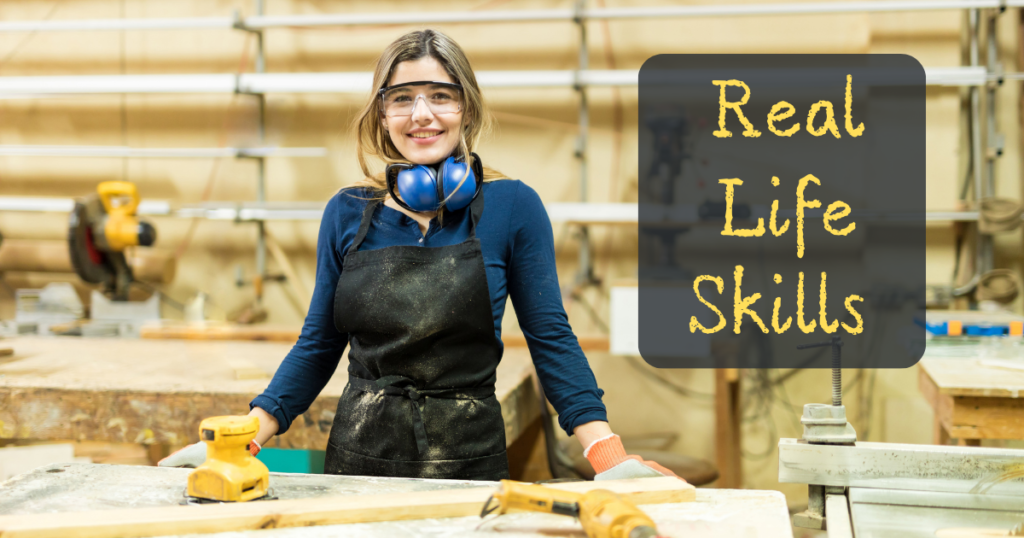As parents, part of our job in raising children is to make sure that they have the skills to be thriving, independent adults, usually by the end of their high school years. The past decade has prompted the realization that young people are not entering adulthood properly prepared with the skills and habits that they should have, and they are struggling.
There are many factors that might account for this including but not limited to treating young adults like children, the lack of life skills taught at home, or at school, the lack of societal expectation for knowing certain skills by the end of the teen years, and the restructuring of society around technology and easily obtainable goods.
Many young adults find themselves ready to live independently of their parents, but quickly realize they don’t know how to cook, do laundry, or find deals at the grocery store. They get ready to have families and have zero clue on how to change a diaper, or child psychology, or how to properly nurture the mind of a growing child without inadvertently causing trauma.
There is the famous saying that “children don’t come with an instruction manual,” but maybe they should. Maybe the manual should be required reading in the teen years of every young person. What is more applicable to a person’s life than how to be a part of a family and how to maintain one?
Young people move into their first apartment and realize they were never taught certain things that are part of everyday life. Things that are necessary to know. They passed the test on graphing inequalities and the length of time of the Cretaceous period, but how to bake a loaf of bread or hem a pair of pants, or what are some retirement saving options were never even mentioned as need to know skills in school.
It wasn’t always like this. For the better part of the 1900s all middle school or high school students were require to take Home Economic classes. The young ladies would learn how to cook meals, basic child rearing tips, how to sew, how to do laundry, how to keep the home clean and how to manage the household budget. Young men were taught wood working skills, how to fix things around the house, how to use tools, and were expected to participate in maintaining the house (often with other experienced adult men) like fixing a roof, or adding a deck, or installing gutters, etc.
Now with all kinds of machines and stores to replace one’s own labor, it is easy to simply purchase ready made items or hire out work to a handy person. Just call someone to fix simple things around the house. You don’t have to know how to cook. Who needs to keep track of a pot of rice when there is a rice cooker on a timer! And when it comes to child-raising,
parents farm their children’s upbringing out to schools and camps.
Perhaps this recognition is why the homesteading and homeschool movements are gaining momentum with every passing year. Young people are realizing that in order to make sure their children grow up ready for the real world, practical skills must be taught from a young age with a different different value system instilled rather than the ones the millennials and subsequent generations are being taught by society. Life skills don’t have to be as gender based as they were back in the last century, but every teen would benefit from having basic training in all the areas mentioned above.
Since schools stopped offering Home Ec. classes in the 1990s, parents are providing the training one on one, often learning right alongside their children. Online videos and content creators are the new teachers and mentors. It seems society is in a transition period as parts of it re-evaluates certain values and choose “old-fashion” practices. It turns out practicality can be old-fashioned or modern, but it applies to life no matter what era people are living in.
The skills of old are being rediscovered and schools are becoming anarchisms themselves as they move further and further away from real-life and human nature. It is good that young people are taking steps to correct mistakes that their parents unintentionally made from a lack of understanding about what is important in life.
The newest generation hold the greatest potential for a positive future for humans because they understand the importance of raising well-equipped adults. Now every homeschooler has a life skills class they take before graduating. One day, it will again be a class every young person has to take.




